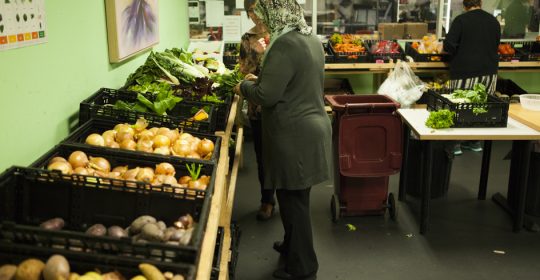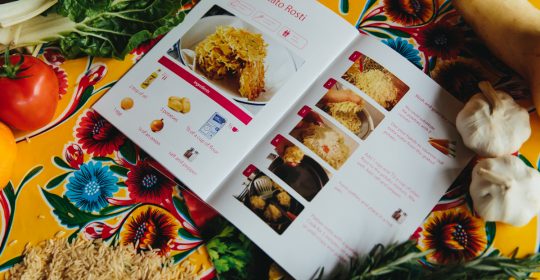
Deakin University research findings lead to changes in Foodbank model
The ASRC’s founding program, Foodbank has evolved from a few boxes of food to now an over one million dollar operation, 85% of which is sourced from generous food sponsors and individual food donors which now feeds around 650 people seeking asylum each week. Most of the people who access Foodbank have no source of income so there are little, if any other sources of nutritious food for them and their families. But is Foodbank meeting the nutritional needs of its members? That’s a question the Deakin University School of Health and Social Development recently asked.
Over an eight weeks, a research paper by Deakin University analysed the food baskets of 116 people who access the ASRC Foodbank for their nutritional value. The findings indicated that, overall, the average food choice was deficient in the essential vitamins folate, calcium and zinc, while remaining high in sodium and fat content.
The study found this could be largely attributed to the considerable number of snack items (typically high in sugar and fat), and ready-made, non-perishable foods, such as instant noodles, that are not only universally familiar but avoid the need for food preparation. For men seeking asylum, this issue is particularly relevant.
One of the study’s more interesting observations is that the concept of healthy and unhealthy food can be unfamiliar to people whose cultural background and country of origin does not categorise food based on nutritional value.
The study’s authors also make the important point that nutritional content is not just about person’s food choices, but the types of foods available to them.
The study’s findings have since supported the Foodbank to develop new practices to increase healthier options and choices to reduce the long-term health implications of poor nutrition, such as obesity, and mental illnesses such as depression and anxiety.
Other changes have included the layout of the Foodbank and also increasing access to foods higher is essential nutrients.
The program has also prioritised food education by running regular eight-week cooking courses for members, and produced a cookbook in collaboration with members, which includes nutritional recipes that are easy to prepare. And food education doesn’t stop there: in partnership with SecondBite, all Foodbank volunteers have completed their FreshNed training program, giving them the confidence to assist members in healthier, nutritional food choices.
Foodbank has also increased the amount of fresh food available to members, with the help of a refrigerated van donated by Rotary Balwyn.
By providing more fresh produce and implementing recommendations from this research the ASRC Foodbank has improved the nutritional value of food members receive by almost 30% in 18 months.
Ninety-percent of the fresh food is donated to the Foodbank from food rescue organisations such as SecondBite, FareShare, Foodbank Victoria, OzHarvest and FoodNotBombs. But Foodbank still has a long way to go before people seeking asylum are receiving enough food to last them the whole week.
A great way to support the ASRC Foodbank is to become a food sponsor. Food sponsorship can be arranged weekly or monthly, and once you select how much you’d like to donate and what foods, we can match you with a wholesaler so that your donated goods can be delivered freight free. Find out how to become a food sponsor today.
Leave a reply




Connect with us
Need help from the ASRC? Call 03 9326 6066 or visit us: Mon-Tue-Thur-Fri 10am -5pm. Closed on Wednesdays.